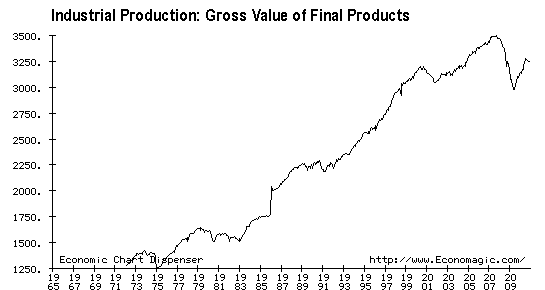Uncertainty Could Spell Disaster for the Dow (^DJI ^VIX JPM)
Post on: 16 Март, 2015 No Comment

Nothing in life is certain. But there are some uncertainties that can be avoided, and markets particularly loathe it when they aren’t.
Sequestration, tax increases, the fiscal cliff — these are some of the punishments politicians could have avoided. But instead, we have increasing uncertainty, and that could hit the Dow Jones Industrial Average ( INDEX: ^DJI ). and the markets in general, like a ton of bricks as the year end approaches.
The Dow, the market’s lovable yet odd index, appears apolitical on the surface. It’s a price-weighted average of some of the United States’ largest companies, and at first glance, it seems as if it doesn’t care who’s doing what in the political realm. But the Dow is based on stock prices, and those stock prices are determined by people like you and me who are buying and selling stakes in companies. Politicians have control over tax rates and government spending, which can no doubt have an effect on stock prices and along with them, the Dow.
For those of you who are curious, sequestration is the trip switch Congress passed that would automatically cut $1.2 trillion in defense spending over nine years. The fiscal cliff is the conundrum the U.S. faces if tax increases and sequestration go into effect. Both of these time bombs are set to go off at the first of the year, and the uncertainty leading up to it could send volatility, measured by the Volatility Index ( INDEX: ^VIX ). skyrocketing. Yes, volatility has been pretty low since the dark days of fall 2008 (and has dropped 32% year to date) , but be prepared for a wild December ride in the markets. During the heart of 2011’s debt-ceiling debate, the Dow dropped 15% over the course of a week and a half. If Congress doesn’t act quickly, there may be more market plunges.
While the debt ceiling shouldn’t have to be raised until the beginning of next year , Bush tax cuts and a payroll tax holiday are expiring at the end of the year, and Defense Department cuts must be dealt with during Congress’ lame-duck period. Judging by last year’s no-holds-barred debate over raising the debt ceiling, debate over the tax rate increase could bring an all-out brawl with little time for resolution.
The U.S. isn’t the only one affected
It’d be one thing if our decisions affected only our country, but that isn’t the case. Uncertainty was at the core of the International Monetary Fund’s recent World Economic Outlook update, which painted a gloomy picture of economic activity for the remainder of 2012 and into 2013. Global growth estimates decreased from 2% to 1.5% growth for advanced economies and from 6% to 5.6% for emerging economies . And the U.S. wasn’t spared, with GDP growth estimates reduced a tenth of a percent for 2013 . While these reductions are indeed worrisome, the IMF has based these reductions on a number of predictions, including: U.S. policymakers avoid the fiscal cliff and raise the debt ceiling, while making good progress toward a comprehensive plan to restore fiscal sustainability.
While I think Congress is sane enough to eventually avoid the fiscal cliff, I also expect Democrats and Republicans to lead us to the very brink in a high-stakes game of chicken (think debt-ceiling debate redux). And if we fly right off that cliff? The IMF’s current growth predictions for next year look downright rosy.
As the U.S. talks about taxes and program cuts, there are lessons to learn from our friends overseas. The eurozone’s belly flop into fiscal austerity suggests that cutting too much too quickly exacerbates a slowdown.
Little growth for eurozone














